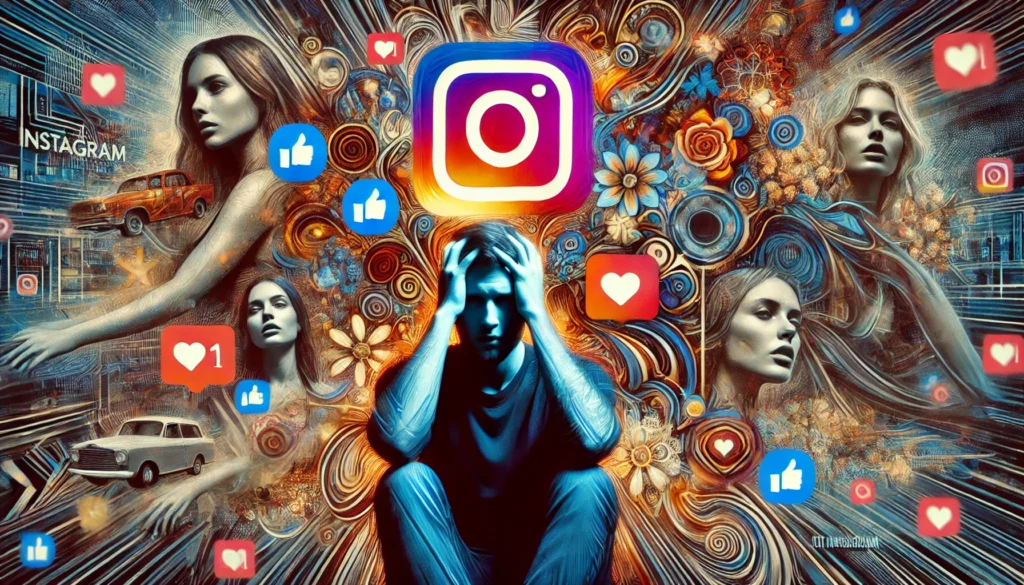What is Igagony?
The concept of igagony encapsulates a multifaceted idea that has garnered attention across various domains, including cultural, psychological, and social contexts. At its core, igagony refers to a state of profound discomfort or an emotional experience marked by a sense of suffering intertwined with an underlying layer of meaning or insight. This duality creates an intriguing dynamic that invites exploration and discussion.
The term igagony has its roots in certain cultural expressions where individuals confront and embrace uncomfortable emotions or situations, ultimately emerging with a deeper understanding of themselves and their surroundings. As such, it can be perceived as a transformative process, where the act of grappling with anguish can lead to personal growth or enlightenment. This notion resonates strongly within psychological theories, such as those relating to resilience and coping mechanisms, illustrating the ability of individuals to derive meaning from their struggles.
From a sociological perspective, igagony may reflect shared experiences within communities, particularly in scenarios where collective suffering fosters a sense of solidarity among individuals. For example, social movements have utilized the concept of igagony to underscore the importance of shared narratives in cultivating awareness and driving change. These movements often highlight how enduring hardship can instigate collective action, fostering a sense of unity and purpose in the face of adversity.
Notable figures in literature and psychology have also engaged with the notion of igagony, exploring its implications on human experiences. These contributions have significantly shaped discussions around the concept, emphasizing its relevance across various narratives and movements. As we delve deeper into understanding igagony, we begin to unravel how individuals and communities navigate their emotional landscapes while leveraging their experiences to foster growth and awareness.
The Emotional Aspects of Igagony
Igagony encompasses a complex emotional landscape that intertwines discomfort with unexpected avenues of pleasure. This unique state plays a significant role in shaping individual emotional responses, as the inherent tension between pleasure and discomfort invites a deeper exploration of human feelings. Psychological research supports the notion that experiences of igagony can induce a wide range of emotions, often resulting in both distress and joy simultaneously. For instance, studies have shown that encountering unsettling yet captivating art can evoke igagony, prompting viewers to confront their emotional reactions and question their aesthetic preferences.
The emotional implications of igagony are further illustrated through real-life anecdotes. Individuals often report feelings of exhilaration when confronting their limits or engaging in challenging experiences, which may initially provoke discomfort. This multifaceted emotional response indicates that igagony is not merely about feeling unpleasant sensations; rather, it serves as a catalyst for personal growth, self-reflection, and emotional resilience. Some people might engage in activities that evoke igagony, such as extreme sports or horror films, as a means of exploring their boundaries and understanding their emotional capacities.
Expert opinions also shed light on the psychological dimensions of igagony. Psychologists suggest that the interplay between pleasure and discomfort fosters a sense of authenticity, allowing individuals to embrace their complexities and emotional contradictions. In many ways, igagony reflects the human condition, highlighting the importance of confronting uncomfortable emotions to achieve a more profound understanding of oneself. By navigating through these emotional experiences, individuals can cultivate empathy, adaptability, and personal insight, ultimately enriching their emotional intelligence and fostering a greater sense of connection with others.
Igagony in Popular Culture
The concept of igagony has permeated various elements of popular culture, manifesting vividly in literature, film, and social media. This multifaceted theme often serves as a lens through which artists and creators interpret human emotions and experiences, showcasing a spectrum of narratives that resonate with audiences. In literary works, writers frequently utilize igagony to explore complex psychological states, often threading stories that encapsulate feelings of defeat, struggle, and resilience. Protagonists grappling with igagony in these narratives frequently illustrate the depth of human suffering juxtaposed with the pursuit of hope or redemption.
In the realm of cinema, the portrayal of igagony can be observed in numerous films that delve into the darker sides of existence. Directors skillfully craft narratives that highlight the persistence of igagony, often using visual metaphors and symbolism to enhance the storytelling. Movies that demonstrate the duality of despair and fortitude showcase characters who embody igagony, providing viewers with profound insights into the human condition. Such films not only entertain but also provoke contemplation around the broader implications of igagony within society.

Social media platforms have further amplified the discussion surrounding igagony, fostering communities where individuals can share personal stories and experiences related to this concept. By utilizing hashtags and online forums, people connect with one another, shedding light on the universal nature of igagony and its implications on mental health and well-being. Creative expressions such as art, memes, and short videos serve to depict igagony in relatable ways, ensuring its place in contemporary discourse. Overall, the exploration of igagony through various cultural lenses not only enriches our understanding of this unique concept but also reflects its significant influence on modern society.
Exploring the Future of Igagony
The concept of igagony is poised at a fascinating crossroads in our ever-evolving society. As we glance into the future, it becomes evident that the interpretation and significance of igagony can shift significantly, influenced by technological advancements and globalization. In a connected world, where information flows freely, diverse perspectives on igagony can merge, offering a richer and more nuanced understanding of this unique concept.
Technology, particularly, plays a pivotal role in reshaping our engagement with igagony. With the rise of social media platforms and virtual communities, individuals from various backgrounds can share their interpretations and experiences related to igagony. This digital exchange not only democratizes knowledge but also facilitates the cross-pollination of ideas, leading to transformative shifts in how igagony is perceived and understood. Additionally, emerging technologies such as artificial intelligence and virtual reality may offer novel avenues for exploring this concept, providing immersive experiences that could deepen comprehension and emotional resonance.
Globalization also carries significant implications for igagony, as cultural exchanges become more commonplace. The blending of diverse philosophies and artistic expressions can cultivate innovative interpretations of igagony, emphasizing the interconnectivity of human experience. In fields such as mental health, practitioners might begin to incorporate igagony into therapeutic frameworks, recognizing its potential to foster resilience and emotional intelligence in clients. Similarly, artists and philosophers may draw upon the tenets of igagony to provoke thought and inspire creative exploration, thus weaving it into the fabric of contemporary discourse.
As we consider these developments, it is essential to foster a critical lens towards the evolution of igagony. Engaging thoughtfully with its implications will allow individuals and communities to navigate the complexities of existence in a world that is continuously changing.
May Be You Also Read
